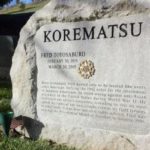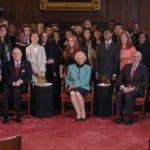On December 18, 1944, the U.S. Supreme Court handed down one of its most controversial decisions when it upheld the government’s decision to intern all persons of Japanese ancestry (both alien and nonalien) on the grounds of national security. Over two-thirds of the Japanese in America were citizens and the internment took away their constitutional rights. In this lesson, students evaluate the consequences of past events and decisions related to the Supreme Court case Korematsu v. United States (1944). They consider the challenges involved when trying to balance civil liberties and national security during threatening times and reflect on the lessons learned about civil liberties from the justices in the Korematsu case.
Korematsu and Civil Liberties

This documentary explores the landmark case Korematsu v. U.S. (1944) concerning the constitutionality of presidential executive order 9066 during World War II that gave the U.S. military the power to ban thousands of American citizens of Japanese ancestry from areas considered important to national security. A PDF lesson plan accompanies this video.
A Conversation on the Importance of the Japanese Internment Cases

Justices Stephen G. Breyer, Sandra Day O’Connor and Anthony M. Kennedy discuss two landmark cases, Korematsu v. U.S. and Hirabayashi v. U.S., in which the Supreme Court tried to strike a balance between individual rights and national security during wartime. The cases stem from President Franklin Roosevelt’s 1942 executive order that mandated the relocation of Japanese and Japanese Americans to internment camps. This video complements the documentary Korematsu and Civil Liberties.
The Pursuit of Justice
The Pursuit of Justice book, written by Kermit L. Hall and John J. Patrick, analyzes 30 Supreme Court cases chosen by a group of Supreme Court justices and leading civics educators as the most important for American citizens to understand. An additional 100 significant cases included in state history and civics standards are summarized. The complete book or individuals chapters can be downloaded.